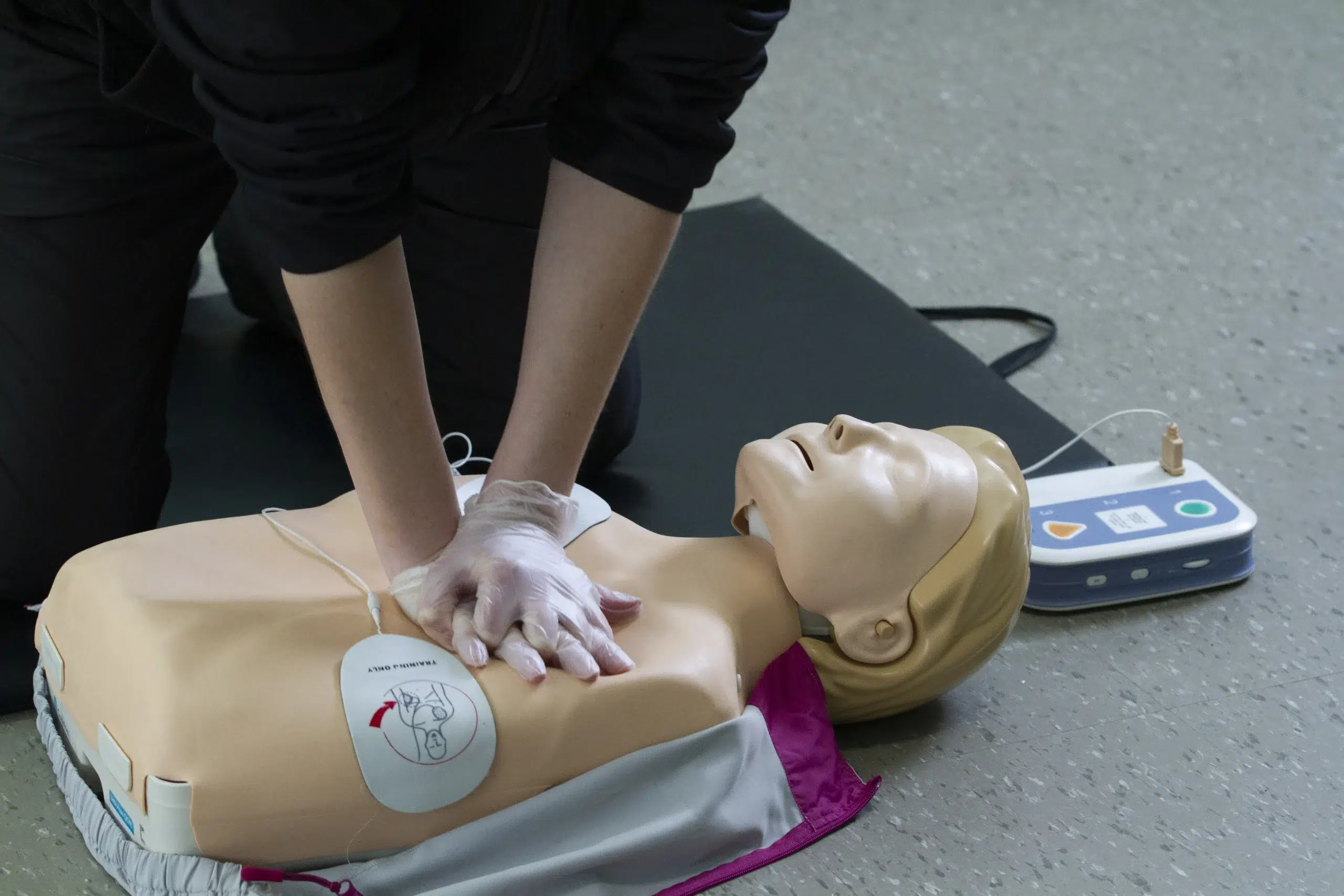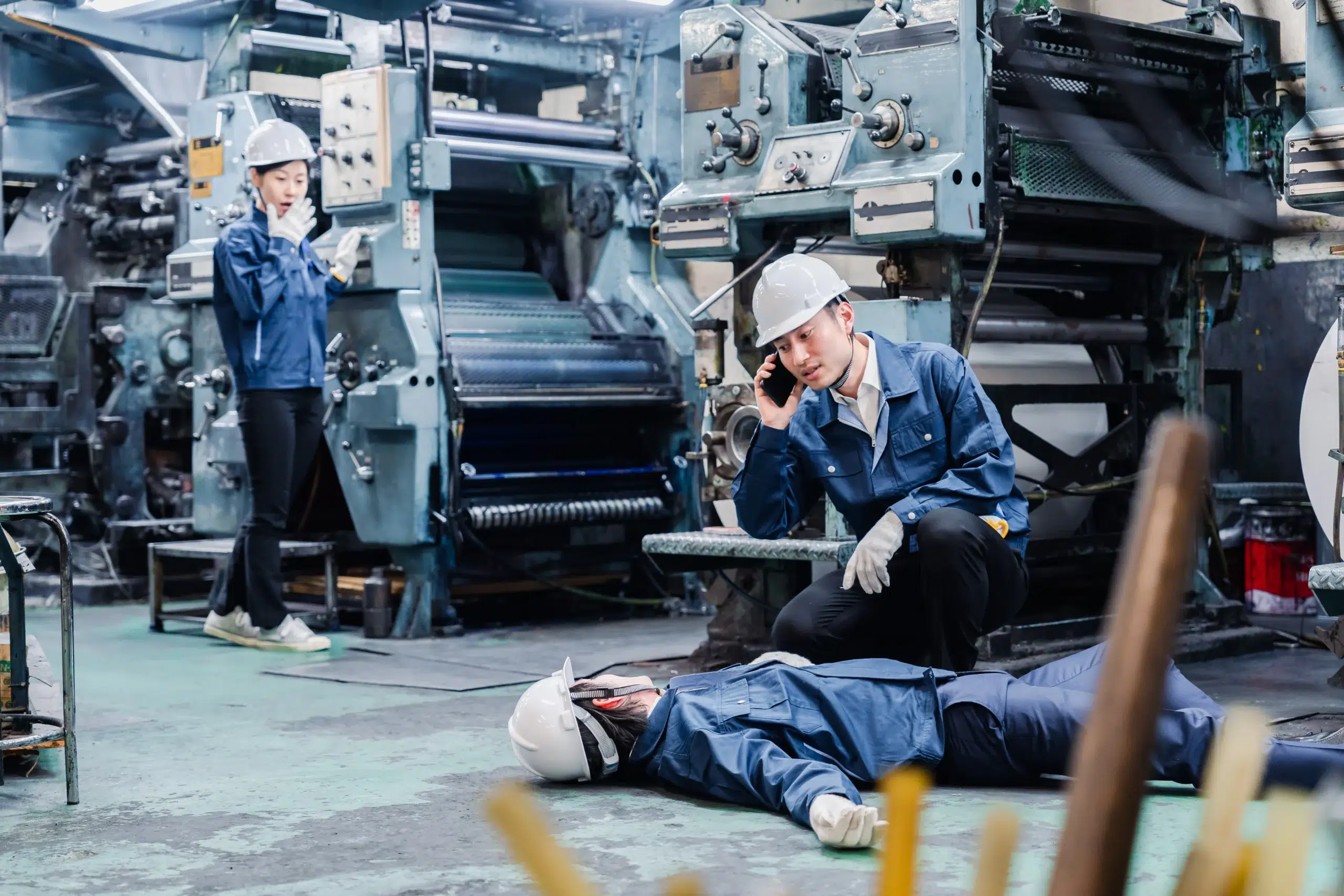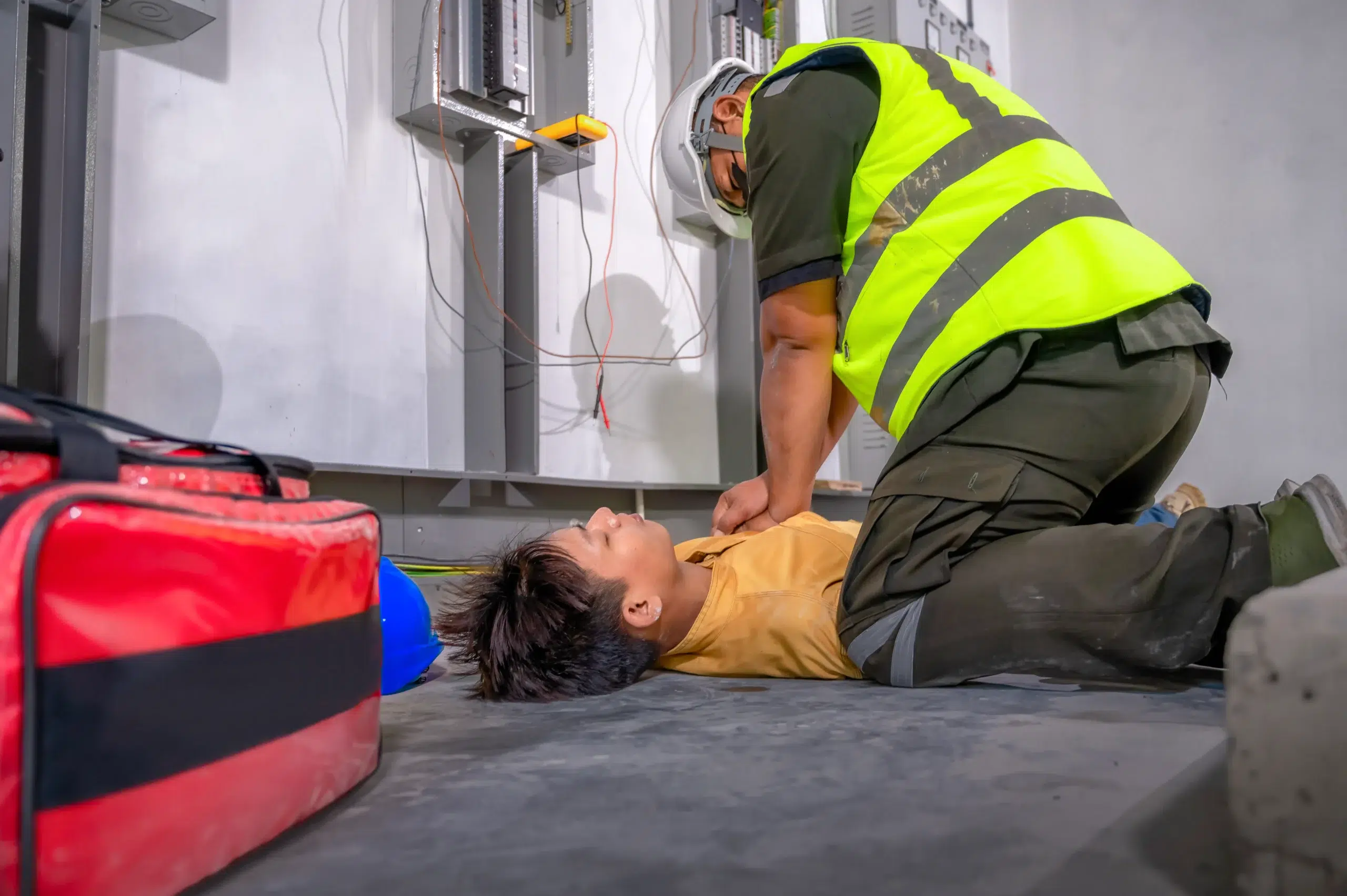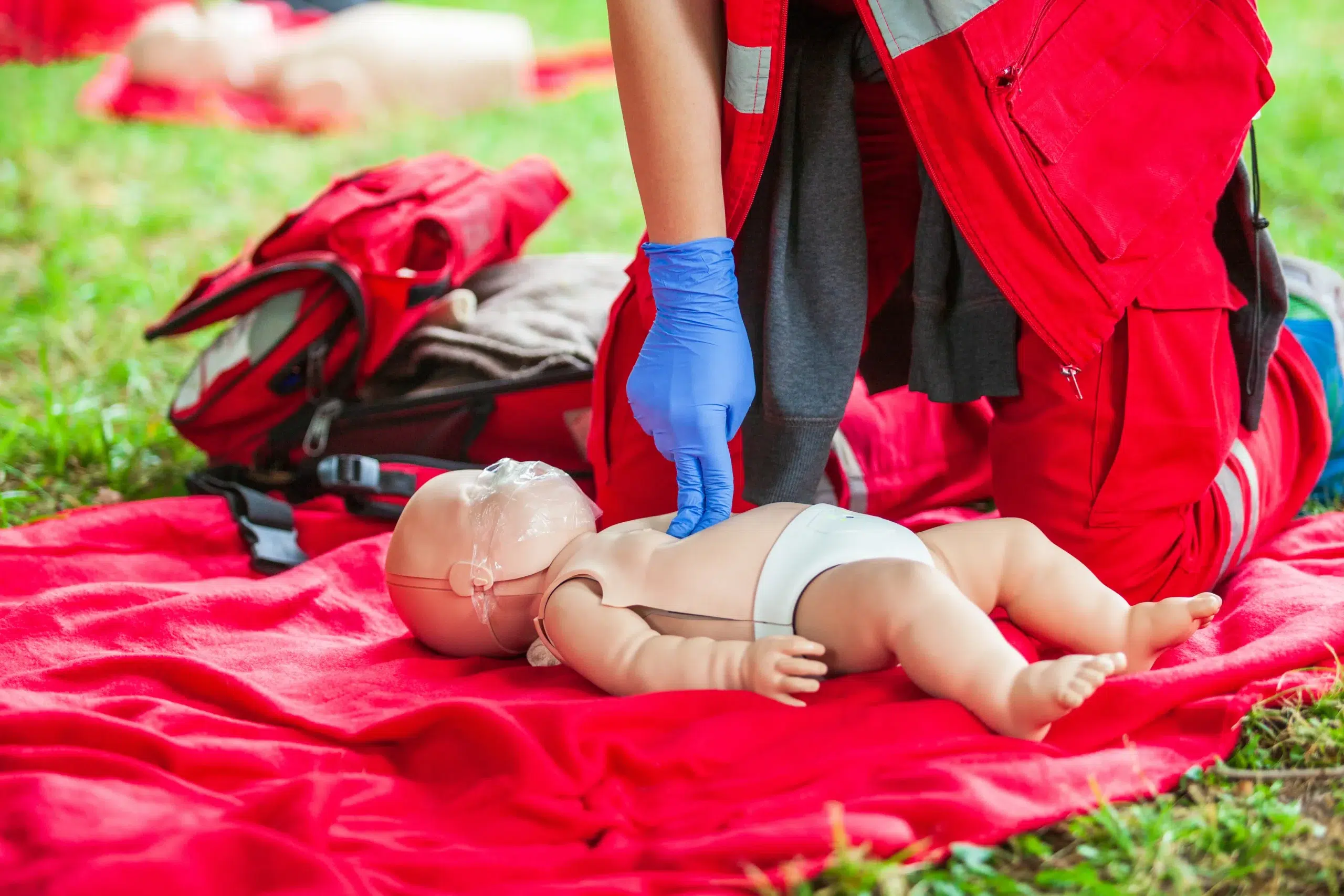Working in healthcare, you know how quickly things can change in a critical situation. Staying sharp with your Basic Life Support (BLS) skills is crucial for providing the best possible patient care. But between long shifts and busy schedules, finding the time for BLS recertification can feel like one more thing on an already overflowing plate. This guide breaks down everything you need to know about BLS recertification, from what to expect in the course to finding convenient options near you, including online resources. We’ll even cover the costs and how to find “BLS recertification near me” so you can quickly and easily renew your certification and get back to what matters most—caring for your patients.
Key Takeaways
- Stay current with BLS recertification: Regularly renewing your BLS certification ensures you have the latest lifesaving skills, giving you confidence in emergencies.
- Find a course that fits your needs: Explore various options, from in-person classes at local training centers to convenient online courses, to find the best fit for your schedule and learning style.
- BLS certification opens doors: Whether you’re a healthcare professional, a student, or anyone who wants to be prepared, BLS certification demonstrates your commitment to providing effective care and can enhance your career opportunities.
What is BLS Recertification?
Definition and Importance
BLS (Basic Life Support) recertification is how healthcare providers, like doctors and nurses, keep their lifesaving skills sharp. It’s a refresher course covering essential techniques for CPR, using an AED, and relieving choking. Staying current with your BLS certification is critical for providing effective care in emergencies. The American Heart Association emphasizes how crucial these skills are for improving patient outcomes. Recertification ensures you’re up-to-date on the latest guidelines and best practices, giving you the confidence to act quickly and effectively when every second counts. For healthcare professionals in San Ramon, Dublin, and Danville, California, maintaining these skills is especially important for serving the local community.
How Often Should You Recertify?
Generally, BLS certification is valid for two years. The American Heart Association recommends renewing your certification before it expires to maintain your credentials and skills. Some organizations may require more frequent recertification, so check specific requirements for your workplace. Don’t let your certification lapse—stay ahead of the game and schedule your recertification course in advance. Danville CPR Classes offers a variety of courses, including BLS Recertification, to help you stay current.
Find BLS Recertification Courses Near You
Need to renew your BLS certification? Finding the right course is easier than you think. Here’s a breakdown of where you can typically find BLS recertification courses:
American Heart Association Training Centers
The American Heart Association (AHA) has a network of authorized training centers across the country. These centers offer a standardized, high-quality BLS renewal experience. You can easily locate a training center near you through the AHA’s website. AHA BLS certification is typically valid for two years, and you can usually renew up to 30 days after your certification expires. For those in the San Ramon, Dublin, and Danville areas, Danville CPR Classes is a woman-owned AHA Training Center offering a variety of courses, including BLS, ACLS, PALS, and more. Check out their low price guarantee.
American Red Cross
The American Red Cross also offers BLS renewal and recertification courses. Like the AHA, the Red Cross provides comprehensive training that meets national standards. Check their website for course schedules and locations in your area.
Local Healthcare Providers
Many hospitals, clinics, and other healthcare providers offer on-site BLS recertification courses for their staff and often open these courses to the public as well. Contacting your local hospital or searching online for “BLS recertification near me” can help you find these options.
Community Colleges
Your local community college can be a great resource for affordable BLS recertification. Many community colleges offer continuing education courses in healthcare, including BLS. These courses often fit well with busy schedules, as they may offer evening or weekend classes. For more information on finding BLS recertification courses, check out this helpful guide.
Online Options
If you prefer a more flexible approach, several organizations offer online BLS recertification. This allows you to complete the coursework at your own pace and from the comfort of your home. Make sure to choose a reputable provider that offers accredited online BLS certification. Just remember, BLS certification requires hands-on skills practice, so online courses typically involve a separate in-person skills session. The National CPR Foundation offers a cost-effective online BLS recertification course.
What to Expect in a BLS Recertification Course
So, you’re ready to renew your BLS certification—smart move! This section covers what you can expect during the recertification process, whether you choose an online or in-person course.
Course Duration and Format
BLS recertification courses are designed to refresh your essential lifesaving skills efficiently. You can expect a course that takes less than an hour to complete, meaning you can update your skills quickly and get back to your busy schedule. Courses are available in both online and in-person formats, offering flexibility to fit your learning style and availability. Online recertification is a popular choice for its convenience, while in-person classes provide hands-on practice and personalized instruction.
Key Skills You’ll Learn
BLS recertification courses cover the core skills needed to respond to life-threatening emergencies. You’ll review CPR techniques, proper use of an AED (automated external defibrillator), and basic first aid. These courses reinforce your knowledge and muscle memory, ensuring you’re prepared to act quickly and confidently in a crisis. Preventing certification lapses is critical, and these refresher courses help you stay up-to-date with the latest guidelines and best practices. They build upon your existing foundation, so you’ll be ready to respond effectively when every second counts.
In-Person vs. Online Options
Choosing between in-person and online BLS recertification depends on your preferences and learning style. In-person classes offer a hands-on, interactive experience, often taught in small groups, allowing for personalized attention from instructors and the opportunity to practice skills with real equipment. If you thrive in a structured, face-to-face learning environment, in-person training might be a good fit. On the other hand, online certification offers unparalleled convenience, allowing you to complete the coursework at your own pace and from anywhere with an internet connection. This format is ideal for busy professionals or those who prefer self-directed learning. Consider your schedule, learning style, and access to resources when making your decision.
Cost of BLS Recertification
Knowing the cost of BLS recertification is an important factor when choosing a course. Let’s break down the typical expenses and ways you might save.
Average Price Range
BLS recertification courses typically average around $75, though prices can vary. Danville CPR Classes offers a low price guarantee, ensuring you receive high-quality training at a competitive rate. We believe that maintaining these essential, life-saving skills shouldn’t break the bank.
Factors Affecting Cost
Several factors can influence the final price. One is the course format. In-person training sometimes includes costs for materials and equipment use. Online recertification may have different pricing structures. Another factor is your location; prices can differ slightly based on the training center and region. Danville CPR Classes serves San Ramon, Dublin, and Danville, CA, offering convenient options for locals. Finally, the certifying organization (American Heart Association or American Red Cross) can also affect the price.
Discounts and Financial Assistance
Many training centers offer discounts, especially for group registrations. This can be a smart option for workplaces certifying multiple employees. Check with Danville CPR Classes about group discounts for your team. You might also find discounts for students, healthcare professionals, or other groups. While financial assistance programs specifically for BLS recertification are less common, it’s always worth asking your chosen training center about available options.
Prerequisites and Enrollment
Before signing up for BLS recertification, it’s helpful to understand the requirements and how to enroll. Knowing this information ahead of time streamlines the process and ensures you’re prepared for your course.
Current or Recently Expired Certification
You’ll need a current American Red Cross Basic Life Support certification, or one that’s expired within the past 30 days, to be eligible for recertification. This prerequisite confirms you have the foundational knowledge needed to renew your skills. Check the Red Cross BLS renewal page for the most up-to-date information.
Required Documentation
The Red Cross issues digital certificates, which are easy to access, print, and share. This digital format typically satisfies documentation requirements for most employers. For details, visit the Red Cross digital certificate page.
Age Requirements
While age requirements can vary, most medical facilities require BLS certification for healthcare professionals who are at least 18 years old. This generally aligns with professional standards in medical settings. You can learn more about the benefits of online BLS certification for nurses to get a better understanding of these standards. This article offers helpful insights.
How to Register
Registering for your BLS recertification course is straightforward. You can usually choose between online and in-person options to fit your schedule and learning preferences. This flexibility makes maintaining your certification much easier. This step-by-step guide offers helpful information on how to renew your American Heart Association BLS Certification.
Benefits of BLS Certification
Getting your BLS certification, or keeping it current, offers several key advantages, both personally and professionally. It’s more than just a credential—it’s an investment in your skills and your future.
Career Advancement
For many healthcare professionals, BLS certification is a non-negotiable requirement. Most hospitals and medical facilities require nurses and other healthcare providers to hold a current BLS certification. Having this certification shows you’re committed to maintaining essential skills and demonstrates proactive career management. It can open doors to more opportunities and help you advance in your chosen field. If you’re a medical student, BLS certification can make you a more competitive candidate for residencies and other programs. Contact us to learn more about our BLS certification courses.
Improved Emergency Response Skills
BLS certification courses equip you with the essential life-saving skills needed to respond effectively in a variety of emergency situations. You’ll learn how to perform CPR, use an AED, and provide basic life support until more advanced medical help arrives. These skills can make a real difference in the critical moments following a cardiac arrest or other medical emergency. The training provided by the American Heart Association ensures you’re prepared for these situations.
Workplace Compliance
Many healthcare settings require their employees to maintain current BLS certification to comply with workplace safety regulations and industry standards. This ensures a baseline level of competency among staff in responding to medical emergencies, creating a safer environment for both patients and healthcare workers. The Red Cross offers convenient online and in-person BLS renewal options to help individuals and organizations meet these requirements. Danville CPR Classes offers a low price guarantee on all our courses, making it easier to stay compliant.
Updated Guidelines
Medical best practices are constantly evolving. BLS recertification courses ensure your knowledge and skills are up-to-date with the latest guidelines and recommendations from organizations like the American Heart Association. This includes any changes to CPR techniques, AED usage, or other essential procedures. Staying current with these updated guidelines is crucial for providing the most effective care possible. The Red Cross offers resources and training that align with these updated guidelines, ensuring your skills remain relevant and effective.
Choose the Right BLS Recertification Course
Picking the right BLS recertification course is key to getting the most out of your training. Here’s what to consider:
Accreditation
First things first, make sure the program you choose is accredited by a reputable organization like the American Heart Association. This ensures the course meets industry standards and is recognized by employers. Danville CPR Classes offers AHA-accredited courses, giving you confidence in the quality of your training. Accreditation validates that the material is up-to-date and aligned with current best practices. For example, ACLS.com discusses the benefits of accredited online BLS certification for nurses.
Instructor Qualifications
Look for courses led by experienced, certified instructors. Qualified instructors bring real-world knowledge and can offer practical tips beyond the textbook. Check if the instructors have certifications from organizations like the American Heart Association or the American Red Cross, which emphasizes instructor training in their BLS programs. The RQI classes at Danville CPR Classes are a great example of specialized training led by qualified professionals.
Course Reviews and Recommendations
Word of mouth is powerful! See what others are saying about different courses and training centers. Online reviews can offer valuable insights into the quality of instruction, course materials, and overall experience. CPR Certification Brooklyn, for instance, highlights the value of student feedback. Don’t hesitate to ask colleagues or friends for their recommendations. A training center with a low price guarantee like Danville CPR Classes often reflects confidence in the value they provide.
Flexibility and Convenience
Your schedule is busy, so finding a course that fits your lifestyle is important. Look for options that offer flexible scheduling, including weekend or evening classes. Online BLS courses can be a great way to learn at your own pace, but make sure they still include a hands-on skills assessment component. Consider factors like location and commute time when choosing an in-person course. Danville CPR Classes serves several locations, including San Ramon, Dublin, and Danville, making it easier to find a convenient option. They also offer discount group classes, which can be a great option for coordinating training with colleagues or friends.
Related Articles
- Your Guide to BLS Renewal in Dublin – Danville CPR Classes
- BLS Certification Danville: A Comprehensive Guide
- BLS Certification Dublin: Costs, Courses & Providers – Danville CPR Classes
- BLS for Healthcare Providers in Danville: A Complete Guide – Danville CPR Classes
Frequently Asked Questions
How long is BLS certification valid, and when should I recertify? BLS certification typically lasts for two years. It’s best to recertify before your current certification expires. This ensures you’re always prepared to respond to emergencies and keeps you compliant with workplace requirements. Some organizations may require more frequent renewals, so it’s always a good idea to double-check specific guidelines for your profession.
What’s the difference between BLS certification and recertification? Initial BLS certification teaches you the fundamental lifesaving skills for the first time. Recertification is a refresher course for those who already hold a BLS certification and need to renew it. It covers the same core skills but in a shorter, more focused format.
Where can I find BLS recertification courses near me? Several options exist for finding BLS recertification courses. The American Heart Association and the American Red Cross both offer courses through their training centers. You can also check with local hospitals, clinics, community colleges, or even explore online options. Searching online for “BLS recertification near me” can help you find local providers.
What if my BLS certification has already expired? You can usually still recertify if your BLS certification is recently expired, often within 30 days. However, it’s always best to check with your chosen training center about their specific policy. If your certification has been expired for longer than the allowed timeframe, you may need to take the full BLS certification course again.
Are online BLS recertification courses accepted? Yes, many organizations accept online BLS recertification courses. However, it’s crucial to choose a reputable provider that offers an accredited program. Keep in mind that BLS requires hands-on skills, so online courses typically involve a separate in-person skills session to complete the certification process.








